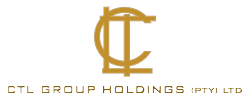Alcohol at Year End Functions

During the holiday season, year-end office parties become a staple event in many companies, bringing together employees to celebrate their accomplishments. However, when alcohol is served at these functions, it introduces a set of responsibilities for employers that go beyond simply hosting a festive gathering.
Managing alcohol consumption at these events is critical to ensuring the safety and well-being of employees, and it serves to mitigate potential legal and reputational risks for the company.
If employees become intoxicated and behave inappropriately, whether driving under the influence or engaging in disruptive behaviour, the employer may face liability if these actions can be connected to their employment.
An employer’s legal responsibility to manage alcohol consumption among employees at work functions is rooted in a broader duty to maintain a safe environment, and this responsibility remains relevant even during off-site social events.
According to the Occupational Health and Safety Act (OHSA), specifically General Safety Regulation 2A, employers are required to prohibit individuals who appear intoxicated from entering or remaining on work premises. This law also prohibits any person from possessing, using, or offering intoxicating substances within the workplace. However, social functions like office parties often come with a more lenient application of these rules, making it essential for employers to address these events separately in their workplace policies.
The implications of failing to responsibly manage alcohol consumption at such events can be significant. Aside from potential health and safety violations, the company could face legal liability for damages or accidents that arise from employees’ actions if they can be linked to work functions. Even if legal repercussions don’t arise, reputational harm to the company’s image and disruption to workplace morale and productivity may result if inappropriate incidents occur.
To navigate the fine line between celebration and safety, employers are encouraged to develop clear policies specifically tailored to social work functions. Policies should set clear expectations for employee conduct at these events, noting that professional appropriateness remains a requirement even in a relaxed, social setting. Employees should be reminded to consume alcohol responsibly, and employers should consider explicitly stating that the company will not be held liable for any harm caused by overconsumption, such as driving under the influence or harassing others. Clarifying these expectations serves as a reminder to employees that while they’re encouraged to enjoy themselves, they still bear personal responsibility for their behaviour.
Policies should also emphasize that any misconduct that negatively affects the employment relationship could lead to disciplinary action, even if it occurs off-site or outside of typical working hours. This approach not only provides a safeguard for employers but also reinforces that each employee is individually accountable for their actions.
Employers can further safeguard employees and the company by implementing practical measures to promote responsible alcohol consumption and safety at year-end functions. For instance, setting a limit on the number of drinks available per employee and designating a specific end time for serving alcohol can help to curb excessive drinking.
Breathalyzer stations can also be provided as a voluntary option for employees to test their alcohol levels before leaving. For those who may be over the legal limit, employers could consider arranging transport options to prevent impaired driving.
Designating a few employees or managers as “function sheriffs” to monitor behaviour is another practical step. These individuals can be tasked with discreetly intervening if someone’s behaviour becomes inappropriate or if they appear to be overly intoxicated. Additionally, informing bar staff or servers to halt service to visibly intoxicated individuals or those displaying inappropriate conduct can prevent situations from escalating.
Year-end functions are an excellent opportunity for employees to relax, socialize, and reflect on the year’s achievements in a more informal atmosphere. However, employers must balance this festive spirit with their responsibility to uphold a safe and respectful environment. Proactively managing the potential risks associated with alcohol at these events helps to protect both employees and the organization’s reputation.
By setting clear expectations, establishing relevant policies, and implementing thoughtful safety measures, employers can ensure that year-end functions remain enjoyable while also safeguarding against incidents that could have long-lasting consequences. In this way, companies can foster a positive environment that allows for celebration without compromising on safety and professional integrity.
By Jan du Toit
